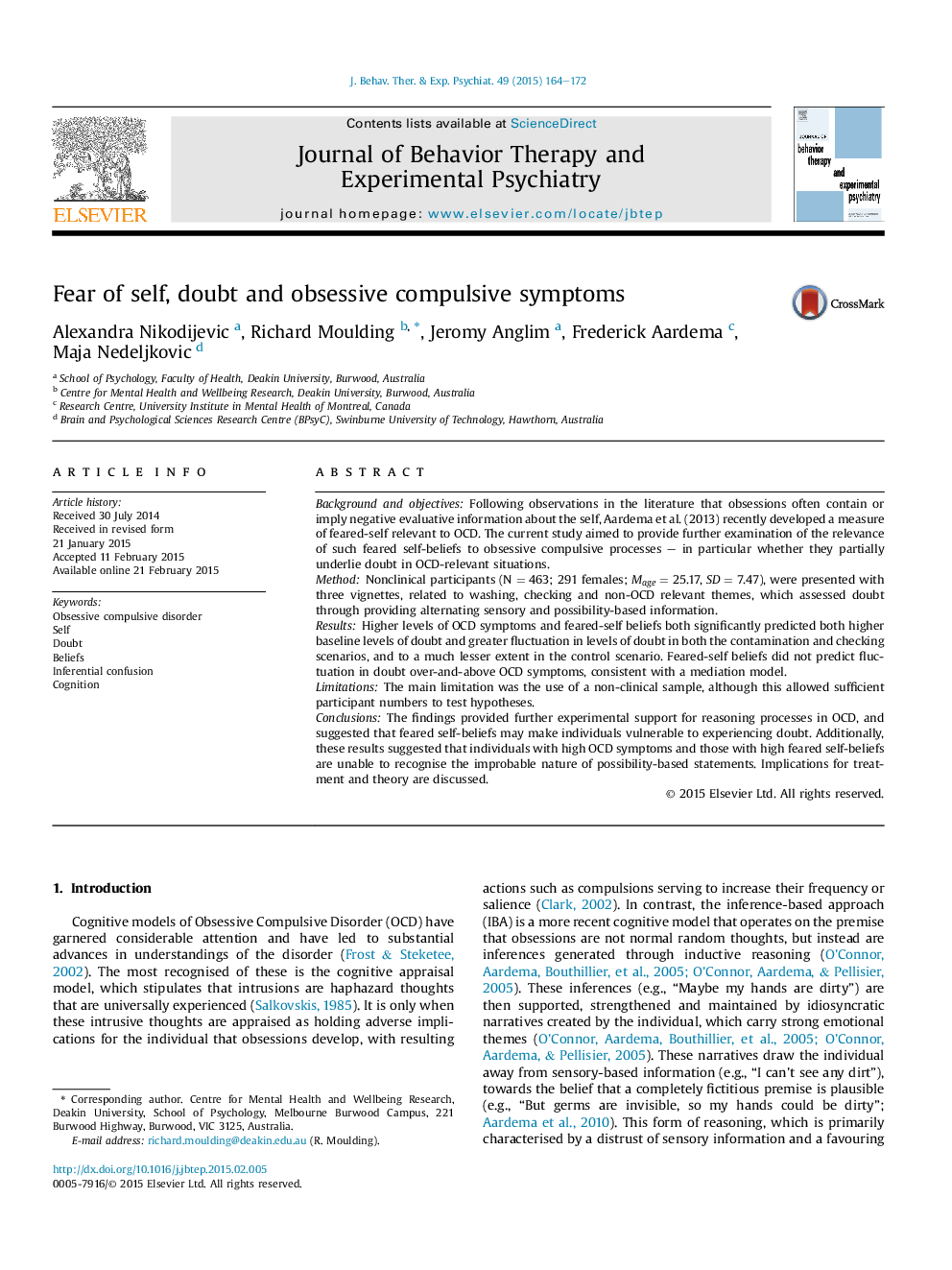| Article ID | Journal | Published Year | Pages | File Type |
|---|---|---|---|---|
| 910325 | Journal of Behavior Therapy and Experimental Psychiatry | 2015 | 9 Pages |
•Participants given vignettes with alternating doubt/reality-based statements.•Individuals high in OCD symptoms more susceptible to possibility-based information.•Feared self also led to greater influence of doubt-based information.•Results support reasoning-based model of OCD.•Feared self belief may partially underlie susceptibility to doubt in OCD.
Background and objectivesFollowing observations in the literature that obsessions often contain or imply negative evaluative information about the self, Aardema et al. (2013) recently developed a measure of feared-self relevant to OCD. The current study aimed to provide further examination of the relevance of such feared self-beliefs to obsessive compulsive processes – in particular whether they partially underlie doubt in OCD-relevant situations.MethodNonclinical participants (N = 463; 291 females; Mage = 25.17, SD = 7.47), were presented with three vignettes, related to washing, checking and non-OCD relevant themes, which assessed doubt through providing alternating sensory and possibility-based information.ResultsHigher levels of OCD symptoms and feared-self beliefs both significantly predicted both higher baseline levels of doubt and greater fluctuation in levels of doubt in both the contamination and checking scenarios, and to a much lesser extent in the control scenario. Feared-self beliefs did not predict fluctuation in doubt over-and-above OCD symptoms, consistent with a mediation model.LimitationsThe main limitation was the use of a non-clinical sample, although this allowed sufficient participant numbers to test hypotheses.ConclusionsThe findings provided further experimental support for reasoning processes in OCD, and suggested that feared self-beliefs may make individuals vulnerable to experiencing doubt. Additionally, these results suggested that individuals with high OCD symptoms and those with high feared self-beliefs are unable to recognise the improbable nature of possibility-based statements. Implications for treatment and theory are discussed.
